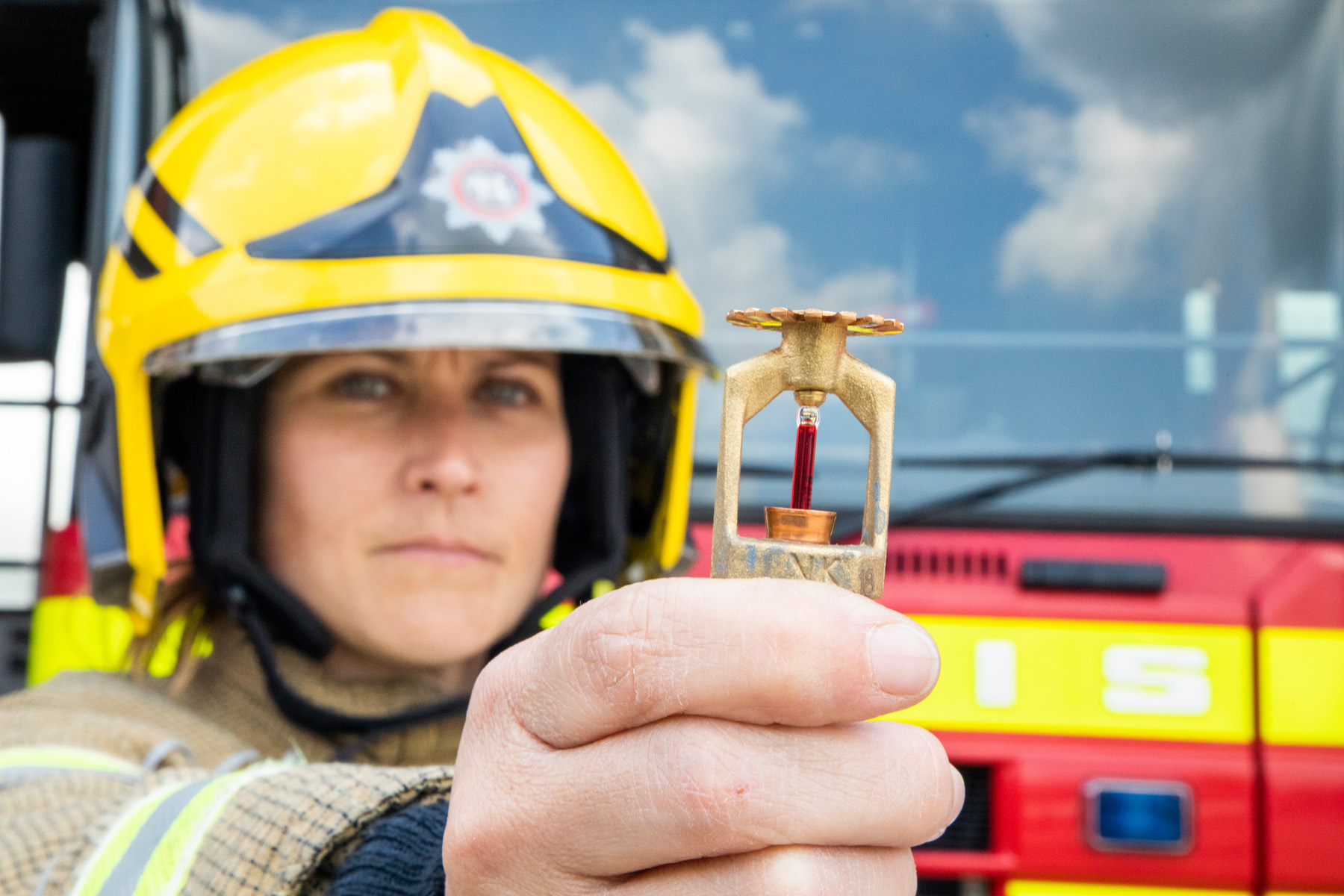
Date: 19th May, 2021
Dorset & Wiltshire Fire and Rescue Service is supporting the National Fire Chiefs Council (NFCC) Sprinkler Week campaign from 17-23 May, to raise awareness of the benefits of sprinkler systems in keeping people and buildings safe from fire.
Fire sprinklers are widely recognised as the single most effective method for fighting the spread of fires in their early stages.
Research by the NFCC and the National Fire Sprinkler Network found that sprinkler systems operate on 94% of occasions so are very reliable and, when they do operate, they extinguish or contain the fire on 99% of occasions. As a result, sprinklers reduce injuries by at least 80%, reduce property damage by 90%, and substantially reduce damage to the environment from fire.
Sprinklers activate when a certain level of heat is detected at ceiling level. The sprinklers then douse the fire with water, both localising it and restricting its spread. Only the sprinkler heads within close proximity of the fire will be activated, meaning water will only be released in the places directly affected.
Group Manager Tim Gray, Head of Fire Safety at Dorset & Wiltshire Fire and Rescue Service, said: “There is a compelling case to be made for sprinklers in any commercial premises on the basis of loss of production or interruption to business. It is recognised that 85% of small and medium size businesses that suffer a serious fire either never recover or cease trading within 18 months. The installation of sprinklers in these types of premises could prevent this loss, and fewer businesses would be forced to relocate or close.”
Despite this, there is some disparity in building regulations and the requirement for sprinkler systems across the UK. Legislation in Wales and Scotland is stricter across many building types than in England and Northern Ireland, and this is something NFCC is asking the Government to remedy.
To find out more about sprinklers, and to see a short video on how sprinklers work, visit www.dwfire.org.uk/sprinklers – to follow the NFCC campaign, look for #ThinkSprinkler on social media.

